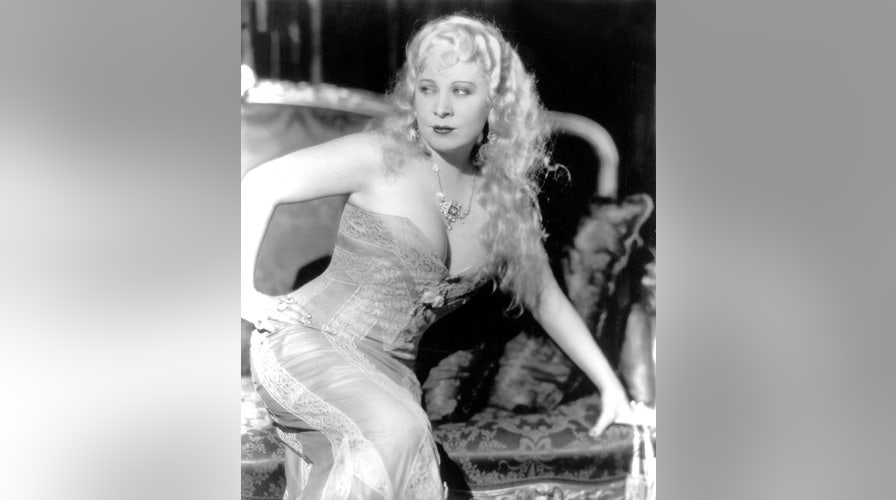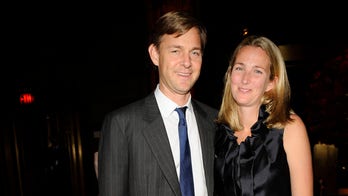Fox News Flash top entertainment headlines for September 4
Fox News Flash top entertainment and celebrity headlines for September 4 are here. Check out what's clicking today in entertainment.
Mae West only knew two rules of playwriting – “write about what you know, and make it entertaining” – which is why she chose to write about sex.
It’s no wonder she brought Hollywood to its knees when she wrote the 1933 film “She Done Him Wrong,” which chronicled a seductive nightclub singer who shimmied her way into the hearts of numerous suitors.
BARBARA STANWYCK BECAME DEVOTED TO ACTING AFTER PAINFUL PAST, SAYS FILM EXPERT
West’s iconic film is chronicled in the Turner Classic Movies (TCM) book titled “Forbidden Hollywood: The Pre-Code Era (1930-1934) When Sin Ruled the Movies.”
The book highlights the 22 shocking films that led to the strict Code of 1934 to prevent salacious and seemingly immoral tales being brought to life on the big screen. It includes more than 200 newly restored and some never-before-published photographs, as well as untold stories from filmmakers and exhibitors.
“Mae West had this reputation countrywide as being this woman who worked nights in New York and had a very scandalous, very sexual life,” author Mark A. Vieira told Fox News. “People in polite society did not use the word ‘sex.’ The community standards were very, very different.”
Before West tantalized moviegoers, she had long sparked plenty of controversies.
The New York Times previously reported her play “Sex” opened in New York in 1926 in front of a full house despite the refusal of local newspapers to carry advertisements for it.
Soon after, the blonde bombshell was targeted by the Society for the Suppression of Voice. Not only was West and members of the cast arrested in the theater, but she was also found guilty of a performance that “tended to correct the morals of youth and others.” The outlet shared West was fined $500 and sentenced to 10 days in prison.
In 1928, the cast of her play “The Pleasure Man” was arrested onstage during the first performance, the outlet revealed. After a second raid two days later, West chose not to reopen it. The Los Angeles Times reported Paramount Pictures, desperate to make a major buck, offered West $5,000-a-week to star in 1932’s “Night After Night.”
Although she only had four scenes, the studio was impressed and bought her 1928 play “Diamond Lil” for her first leading screen role. The title was ultimately changed to “She Done Him Wrong.”

American actress Mae West on the set of "She Done Him Wrong," directed by Lowell Sherman. (Photo by Paramount Pictures/Sunset Boulevard/Corbis via Getty Images)
STRUGGLED TO BE TAKEN SERIOUSLY IN HOLLYWOOD, SAYS FILM EXPERT
“[‘She Done Him Wrong’] was a lightning rod,” said Vieira. “The idea that Mae West could come to Hollywood and make films — that was an issue. And the posters… they emphasized her breasts tremendously. The idea of Mae West making films and the advertisement were a problem.”
Not only did West persevere, but she chose a “sensational-looking young man,” an unknown actor named Cary Grant, to star alongside her. The New York Times noted West spotted Grant walking along the studio street and instantly knew he was her leading man.
“If he can talk, I’ll take him,” she quipped.
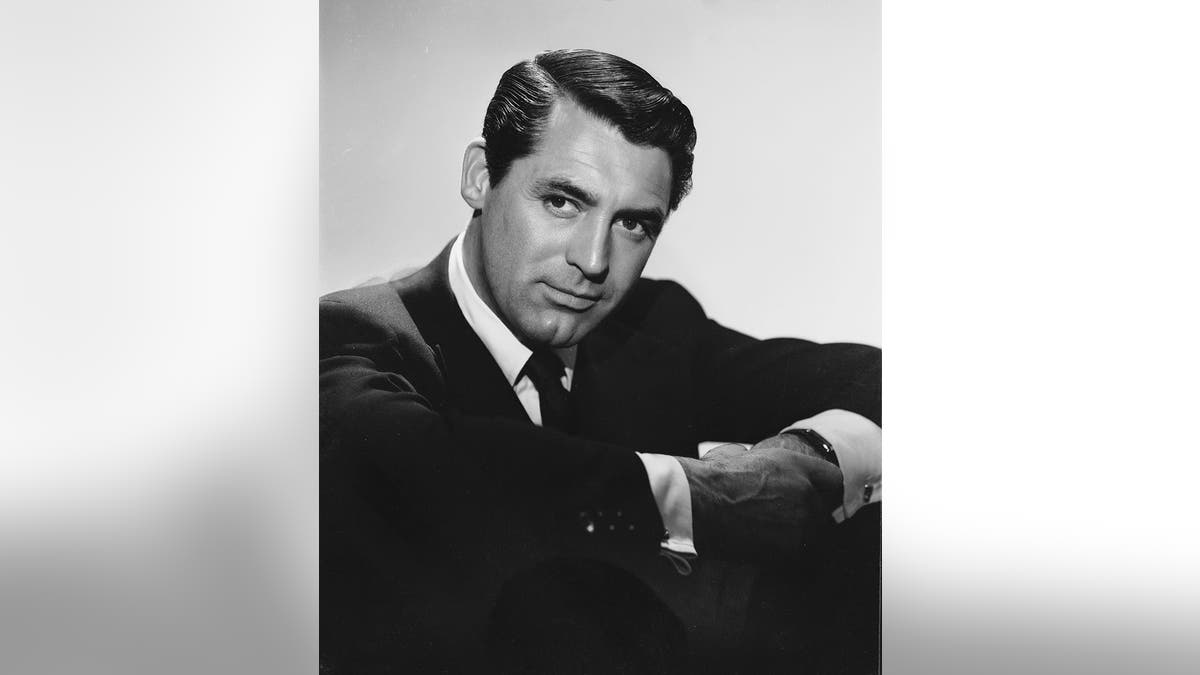
Cary Grant (Getty)
According to Vieira, “She Done Him Wrong” is still famous for West’s witty zingers, but its most famous line – “Why don’t you come up and see me sometime?” – has been misquoted over the years. The line that West actually purred to Grant is “Why don’t you come up sometime and see me?"
'50S ACTRESS KATHLEEN HUGHES TELLS ALL
“The misquote was happening right after the film,” said Vieira. “It just worked on many levels.”
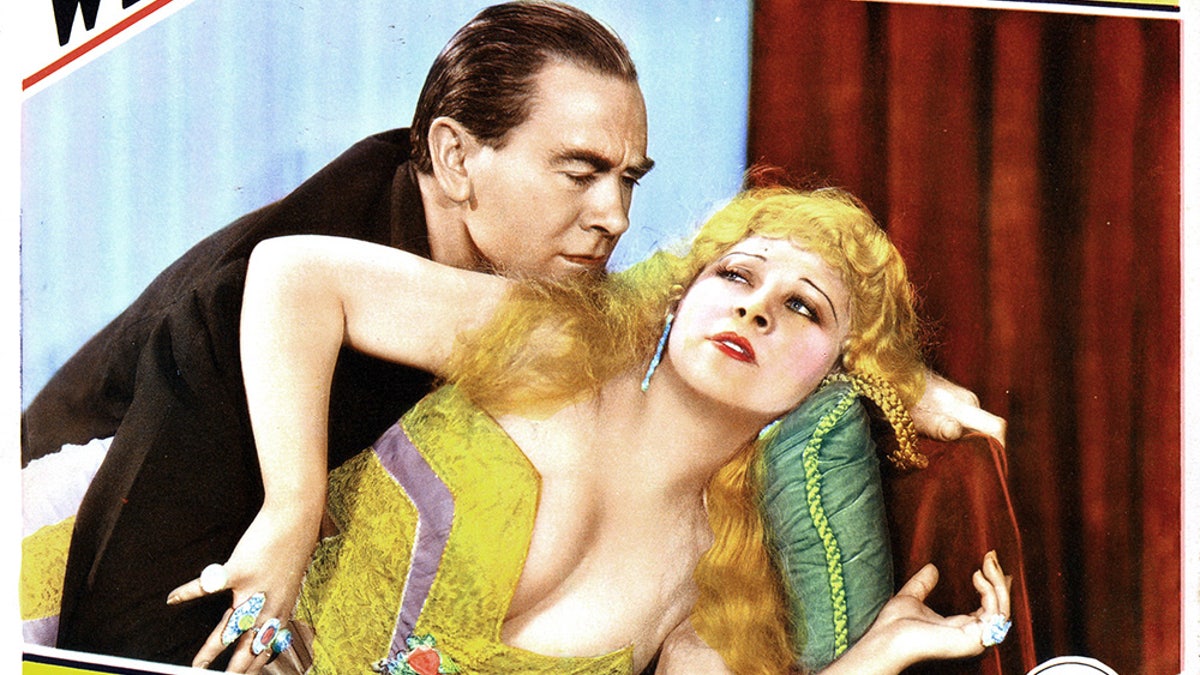
"She Done Him Wrong," lobby card, from left, Owen Moore, Mae West, 1933. (Photo by LMPC via Getty Images)
Vieira shared audiences were immediately captivated by West, whose hourglass figure was draped in sheer, curve-hugging, diamond-embellished gowns that proudly flaunted her assets. Not only did “She Done Him Wrong” broke box office records in the United States, but it drew audiences throughout the world and saved Paramount from bankruptcy.
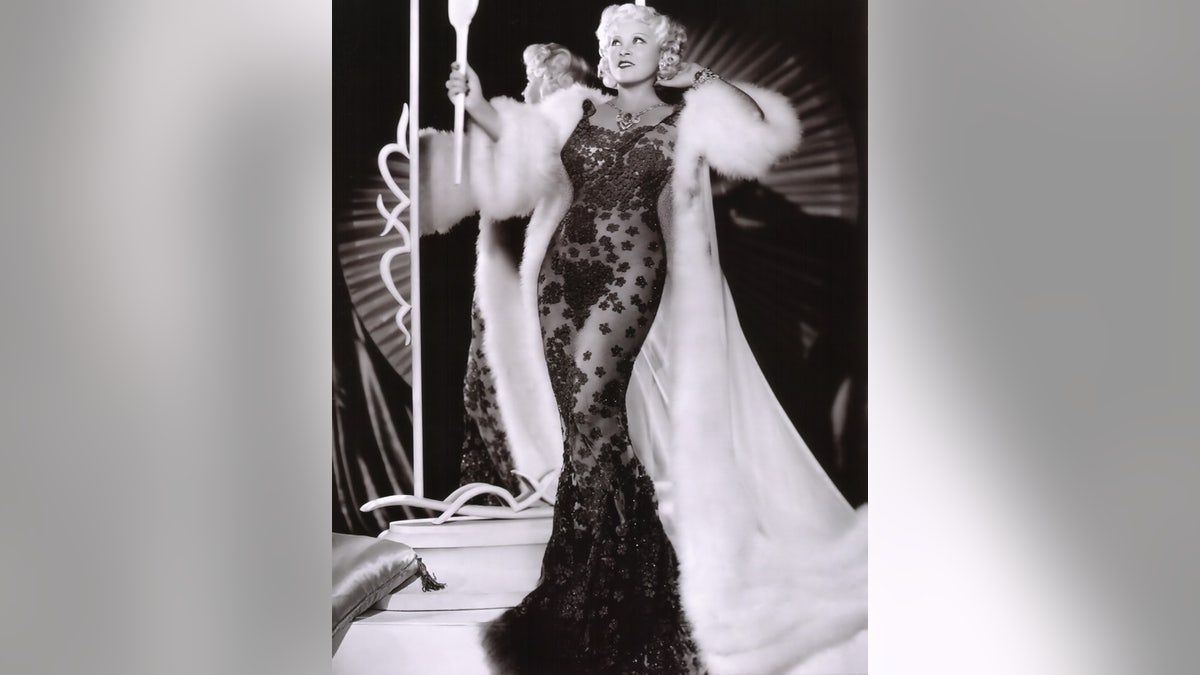
Famous for her zany catch-phrases and double entendres, the vaudeville actress became known as one of Hollywood’s biggest sex symbols in the 1920s and 1930s. (AP)
“I would say 80 percent of that character is her,” Vieira noted. “Initially people thought those movie posters were awful, too vulgar. But when they saw the film, they realized she’s hilarious… Mae was a very headstrong person and she knew her business. She wasn’t going to let people run over her… and she definitely was not a one-man woman.”
West’s follow-up film, 1933’s “I’m No Angel,” became an even bigger sensation. The Los Angeles Times noted that after three more movies, West was earning the highest salary of any Hollywood star with $300,000 per picture and “an additional $100,000 for story or scenario.”
RUTA LEE RECALLS WORKING WITH FRANK SINATRA
And West was proud to project sex on her own terms.
“That was her agenda,” said Vieira. “That was what she believed in. She thought it was good, it was healthy and she was going to do it.”
West flourished in Hollywood, but never forgot her roots. From 1954 until 1956 she toured the country with a nightclub act where she surrounded herself with young musclemen. One of her gladiators, Mickey Hargitay, would go on to marry another Hollywood blonde bombshell who found inspiration in West — Jayne Mansfield.
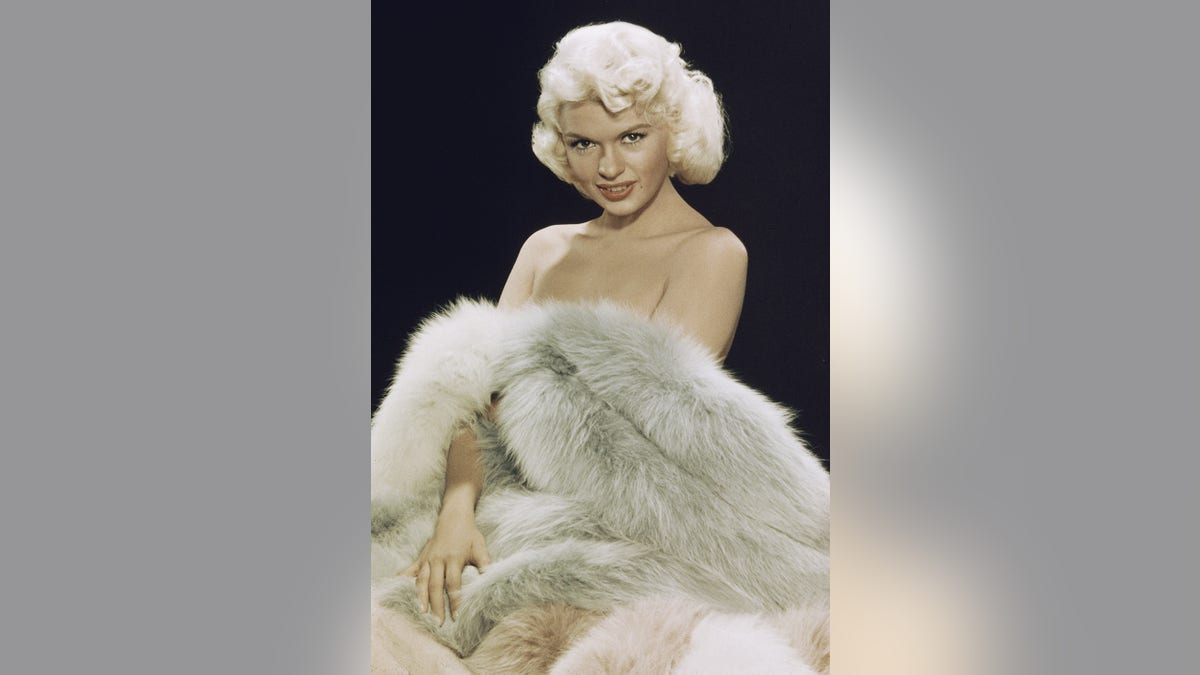
Jayne Mansfield (Getty)
West’s last credit film was 1977’s “Sextette,” where the actress played a role she knew best — that of a glamorous silver screen sex symbol. West was 84 at the time.
LUCILLE BALL'S GRANDDAUGHTER TELLS ALL
And the woman who personified the sexual innuendo had zero regrets doing things her way.
“I lived like a man, in some ways — decided what I wanted and went after it,” West once said, as reported by the Los Angeles Times. “I’m not sorry. A friend of mine once wrote that I was ‘self-enchanted but never self-deceiving,’ and I hope that was always true. I got what I wanted. I still have it. Like I said a long time ago, ‘a real star never stops.’”
West passed away in 1980 at age 87.







































